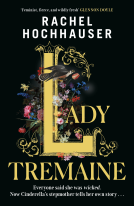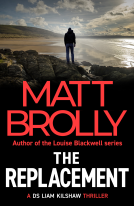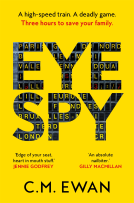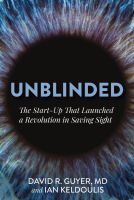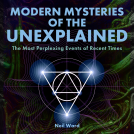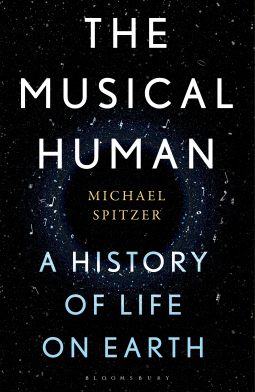
The Musical Human
A History of Life on Earth
by Michael Spitzer
This title was previously available on NetGalley and is now archived.
Send NetGalley books directly to your Kindle or Kindle app
1
To read on a Kindle or Kindle app, please add kindle@netgalley.com as an approved email address to receive files in your Amazon account. Click here for step-by-step instructions.
2
Also find your Kindle email address within your Amazon account, and enter it here.
Pub Date 1 Apr 2021 | Archive Date 1 Apr 2021
Bloomsbury Publishing Plc (UK & ANZ) | Bloomsbury Publishing Plc
Talking about this book? Use #TheMusicalHuman #NetGalley. More hashtag tips!
Description
'Michael Spitzer has pulled off the impossible: a Guns, Germs and Steel for music' Daniel Levitin
165 million years ago saw the birth of rhythm.
66 million years ago was the first melody.
40 thousand years ago Homo sapiens created the first musical instrument.
Today music fills our lives. How we have created, performed and listened to this music throughout history has defined what our species is and how we understand who we are. Yet music is an overlooked part of our origin story.
The Musical Human takes us on an exhilarating journey across the ages – from Bach to BTS and back – to explore the vibrant relationship between music and the human species. With insights from a wealth of disciplines, world-leading musicologist Michael Spitzer renders a global history of music on the widest possible canvas, looking at music in our everyday lives; music in world history; and music in evolution, from insects to apes, humans to AI.
Through this journey we begin to understand how music is central to the distinctly human experiences of cognition, feeling and even biology, both widening and closing the evolutionary gaps between ourselves and animals in surprising ways.
The Musical Human boldly puts the case that music is the most important thing we ever did; it is a fundamental part of what makes us human.
Advance Praise
'An amazing book, tying together research in archaeology, anthropology, music history, and human origins to form a compelling and exciting account of the many ways music has developed across the world and across time ' - Daniel Levitin
Available Editions
| EDITION | Hardcover |
| ISBN | 9781526602763 |
| PRICE | £30.00 (GBP) |
Average rating from 41 members
Featured Reviews
The Musical Human is an impressive and original exploration of music throughout the history of humanity. It's a fascinating blend of musical theory, cultural criticism, history and biology.
It doesn't really matter what kind of music you're into, or whether you can play an instrument - there is something for everyone in this book. My knowledge of music history doesn't really extend much beyond the GCSE curriculum (as it was!), but I found Spitzer's prose clear and clean-cut. That's not to say that there's no depth - far from it. In each of the three sections, we are introduced to some complex concepts and take an extensive look back through history, but this is always done in a way which is straight-forward and easy to follow, using clear examples.
As a fan of various genres of popular music from around the world, I found the exploration of how we experience music in time and physical space particularly interesting. We're living in a time where our consumption of music is changing rapidly, so it's intriguing to take a step back and look at exactly why (and how) this may be.
The Musical Human is an intricate and engrossing piece of non-fiction. I feel that I learned not just something new, but something meaningful too.
 Claudia D, Reviewer
Claudia D, Reviewer
“Listening to music is when we’re most aware of time consciousness; of when we catch ourselves living. I listen, therefore I am.”
I cannot imagine a world without music. I have been surrounded by it since I was born. However, whenever I listened to music, I thought of sound and artist, and the pleasure I get from it. I never thought of its etymology, history, or application. I do now. The author teaches us how to ‘see’ it, to perceive its nuances and tones. It gets dissected by the emotion it induces in us and no matter the genre, happy, sad or angry, music has the same structure.
After reading this book, you'll never perceive music the way you did before, I guarantee you that. Whether you're into classical music, rock, pop or whatever other genre, you'll definitely 'see' it with new eyes. I most certainly 'see' now differently classical music and I will try to listen to it more in the future.
Daniel Levitin has hit the nail with his statement: "Michael Spitzer has pulled off the impossible: a Guns, Germs and Steel for music."
Indeed. It's that comprehensive but the writing is not as tedious, as is the case with the first one. The author's writing style is highly enjoyable, very easy to follow, despite some really hard concepts (for me, at least), with numerous examples of music customs all over the world and timelines, and even when hard topics are touched, his dry humor is present here and there, making the reading a real pleasure.
And I cannot agree more with his statement: "For atheist like me, the ritual of attending a concert delivers a spiritual experience." Same for me, the only difference is the genre of that concert: classical music for the author, rock/metal for me.
I never thought that there is a strong connection between hearing music and walking; well, there is, and it’s scientifically explained too. And this is just one example of how we are connected to music, not only through our hearing.
The book is packed full with information, but none of it is infodump. All there is to know about music is extracted through facts from biology, history and evolution. We also get to know about music and language of animals, from insects to birds, whales and apes. There is even a parallel between crickets chirping and jazz, explained through ‘entrainment’ - highly interesting.
There isn’t a single topic in this book that I did not find captivating: from the oldest-known musical instrument, a flute from about 40,000 years ago, to the music composed/performed by ‘machines’, such as Neil Harbisson, Hatsune Miku, AIVA and Imogen Heap’s Mi.Mu gloves, and everything else in between - I have relished every word.
It was such an incredible reading; one of those rare books for which the rating system of five stars can’t do it justice.
 Mary H, Reviewer
Mary H, Reviewer
I appreciated the historical bit of the book, along with all the rest, but the history was my favourite, and I have not read a history of music before. A well written and researched book, thank you to netgalley for giving me an advance copy to read, and to the publishers too.
Spitzer asks so many interesting questions - such as, why do we start moving when we hear music? Music is not an area I know much about, yet The Musical Human manages to discuss the psychology, theory and evolution of music in a very accessible way - Spitzer's tone is informal with just the right amount of technical terms (all explained) that I felt like I learnt a lot, very quickly, and - most of all - while enjoying myself. This would be a perfect 'introduction to'-type book, but it is in depth enough that I would imagine those with more knowledge than myself would also get a lot out of this.
The book makes the interesting point that a history of music and music making can only go so far, given that the first recording of a piece of music wasn't until 1877, music notation can be surprisingly unreliable, and the archaeological record is scant, to say the least.
So many interesting studies are cited, such as research into how our music preferences are shaped as infants and our culture. There is so much that I simply hadn't reflected on before; Spitzer has ignited an interest in the evolution and the psychology of music, and his discussions on the possible future of music make me hopeful that another volume is on its way.
An interesting book though I had to fight to be able to view the PDF as it didn't work in various apps or open in the NetGalley app (I try not to request books that aren't available in Kindle but messed up here!).
It is interesting but I found the structure confusing and a steady stream of concepts pouring through it that had me a bit lost at times. The idea of tracing everything backwards was innovative but you really had to keep tabs on where you are. It might be a touch of lockdown fatigue but it proved a bit much for me, but I know people will get a lot out of it and I'm glad it's written and out there.
Spitzer's text is an ambitious examination of the history of music across both world cultures and millennia, spanning studies across history, literature, archaeology, anthropology, neuroscience, and more.
The text can often feel intimate - moments when Spitzer walks through Liverpool describing the history of slavery in the city are particularly poignant - yet distant through time and space, at the same time. It is packed full of insights across all disciplines, looking at music in our every day lives, history, and evolution - and this can, at times, be hard to keep up with,.
The Musical Human is, however, a delightful journey, even for the untrained. Terminology is scattered throughout, but doesn't weigh the text down; rather, as a whole, the book feels invitational, acknowledging readers on both construction and consumption lines of music, and overall fundamentally encouraging in its mission to reinvigorate and illuminate the human relationship to music as a a fundamental part of our being.
In spite of its difficulty in places, I agree with other reviewers that the book puts forth a bold case study for music as the most important thing humans have ever done, and I'm glad I read it. I will recommend it to musicians and non-performers alike, and hope to keep the lessons learned with me for a long time to come.
I started this book thinking that whilst I am not a musician, I do love music and I love history.
Very quickly I realised, that music in all its forms (sound, rhythm, movement, human, animal, mechanical) surrounds us and always has, from the earliest creatures to todays technological creations but in ways that I hadn't really thought of before or maybe had, but didn't make the connection until now?
Michael Spitzer's writing brings to us ways of understanding how music is more than just making sound; he tells us how humans can actually 'feel', 'see' and absorb its origins in an interesting, informative and entertaining way. But far from being just a book of musical history, his descriptions, examples and research bring the history of how music became, to life without being overly academic.
A fabulous book for anyone interested in music and its history; enjoyable for people like me with an appreciation of music or will very much appeal to any accomplished musician or historian.
 Amanda W, Reviewer
Amanda W, Reviewer
A really interesting and eye opening read, not my usual type of book and I struggled with the PDF format but overall a great book and a thought provoking topic.
Fascinating, scholarly but still readable and accessible for non-experts. Lots of ideas to follow up for interest and personal research. I really love this book and would happily recommend it to anyone interested in music.
Music has shaped our culture and even our brains.
An exploration of the impact of music on humans, from our first appearance on earth to the present day.
Spitzer posits we are defined by music and it helps us understand who we are. The author clearly articulates his argument, drawing on expert opinion and evidence from diverse fields, including evolution, astronomy, anthropology, the creative arts, myths and religion, zoology, and artificial intelligence.
Extensive and thought-provoking.
My thanks to NetGalley and to Bloomsbury Publishing for the ARC.
 Paromjit H, Reviewer
Paromjit H, Reviewer
In my excitement and anticipation of reading this, I failed to notice that it is not available on kindle. Many apologies but I am not able to read a PDF. Thank you, for granting me access to this, and I am gutted that I cannot read this.....it sounds absolutely brilliant. Is there any possibility it might be available on kindle?
 Ian F, Reviewer
Ian F, Reviewer
An excellent book. Plenty of factual and interesting information is woven mong the language used. It is worth persevering through the more difficult passages to obtain the rich story inside. Well worth reading.
A massive thank you to Bloomsbury Publishing and Netgalley for this review copy!
The Musical Human was fascinating. It made a change to engross myself in some non-fiction. I wasn’t disappointed.
This book explores the impact music has on humans from when we first appeared on Earth to the present day.
I feel like I will now listen to music differently. Now that I know it’s history and it’s emphasis.
Brilliantly written, and so thought provoking.
 JC S, Educator
JC S, Educator
This is such a fascinating book exploring the connections between music and human beings. It is divided into three parts: Life, History, and Evolution. All three parts are packed with detail and I found it all an interesting read. I particularly enjoyed learning about the development of music in babies, the misalignment of music and musical education, the whole of the history section, and the 'Eleven Lessons on Musical Nature' at the end. Thank you to Michael Spitzer, Net Galley and Bloomsbury Publishing for an ARC in exchange for an honest review.
 Richard W, Media/Journalist
Richard W, Media/Journalist
In ‘The Musical Human’, Michael Spitzer attempts nothing less than a universal history of music on our planet. As he observes at the outset, this has to be a ‘big and bold account, a “big” history’.
Spitzer takes a deep breath, and continues: ‘It would be a party to which all are invited: King David with his lyre . . . Lucy the australopithecine hominin; singing apes and dancing parrots . . . It would take in the protomusical languages of early Homo sapiens, and ask what marks them apart from birdsong or the calls of gibbons . . . It would focus on how and why Western music splintered off as a law unto itself, not as an inevitable triumph, but more like an accident with consequences both good and bad.’
But no sooner has he surveyed the mountain he intends to climb than he admits his history ‘hits one roadblock after another’.
First, there is no recorded music before 1877, when Edison invented the phonograph. Greek music notation dates from 500 BC. ‘Before then, nothing and silence.’
Spitzer looks with envy at archeologists working with their relics and fossils. All music has to offer is the odd bone flute in ancient caves. Scores of musical works pre-date Edison, but can we be sure that their performance in Mozart’s day sounded as they do to a modern concert audience?
As Spitzer goes further back in musical history, more doubts emerge. Liturgical chants heard in the first Gothic cathedrals 800 years ago had no harmony, no rhythm, no tempo, just pitch. Saint Augustine, a champion of music in AD 400, bid his flock to ‘sing in jubilation’, but we have no idea what music they sang. Leap back 40,000 years to the first cave paintings. One theory is that these paintings were clustered at points of maximum resonance in the caves. The discovery of shards of bone flutes nearby suggests music was played there.
So, Spitzer argues, we are obliged to extrapolate from the present. He structures his history along three timelines: first, a human lifespan, exploring the ways music is interwoven with life from the sounds in the womb to old age; second, music in world history; and finally, the broadest timeline, evolutionary.
One capacity of humankind that sets us apart from animals is our ability to follow a rhythm, clap or dance in time, remember a melody or identify an emotion associated with a particular piece of music. Yet though Western children are exposed to many more types of music than those in the rest of the world, Spitzer argues that there is a trajectory in the West from active musical participation in school to passive listening, a theme he develops throughout the book.
When he turns to world history, Spitzer considers how musical development may reflect the three stages of human civilization: hunting and gathering, farming and town life. And musical evolution took its biggest leap forward when man began to walk on two legs, which triggered a process through which the vocal tract gradually expanded, allowing man to speak and sing.
At times, the book becomes somewhat lost (for this reader) in musical technicalities, but the scope of Spitzer’s ambition deserves nothing but praise. It is the closest we may come to a definitive history of the musical human.
 Media/Journalist 696144
Media/Journalist 696144
A very enjoyable and entertaining blast through the history of music, what music means to us.
Spitzer has undertaken a great deal of research across a number of disciplines to come up with what seems to be a fairly definitive history of music. If you're looking for a book that tells you who recorded what when, this is not for you, but if your interest is more anthropological, this really is an excellent starting point.
The author's writing style makes this book both accessible and informative and I would have no hesitation in recommending this book to anyone who has an academic interest in music.
Readers who liked this book also liked:
We Are Bookish
Historical Fiction, Literary Fiction, Multicultural Interest
Dr. David Guyer & Ian Keldoulis
Business, Leadership, Finance, Health, Mind & Body, Science
Olesya Salnikova Gilmore
General Fiction (Adult), Historical Fiction, Romance


